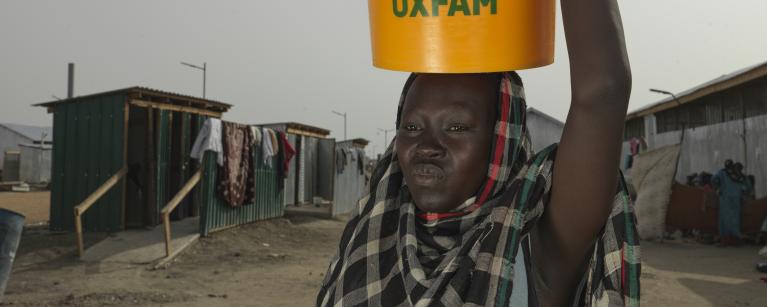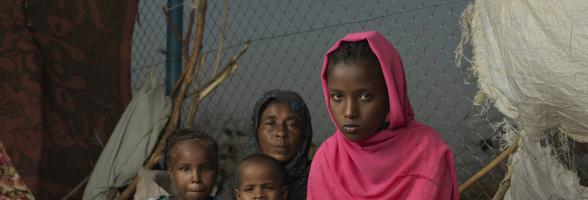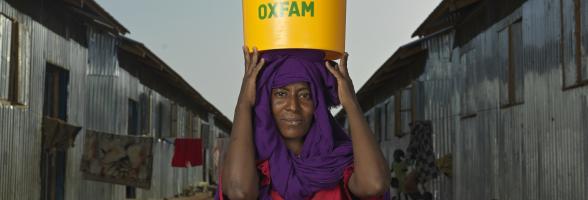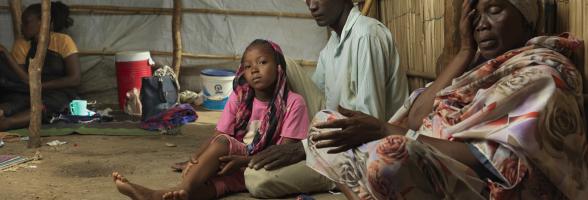Achol Ring Tong, is on the run from violence for a second time in her twenty-one years of life. On the 31st of May, 2024, she entered South Sudan through the Joda border entry point with her daughter and 21-day newborn.
That day Achol replaced her title as a refugee living in Sudan to a South Sudanese returnee displaced in her homeland. Soon, she will take a bus to a transit center in Renk where she will wait for her husband to join her in South Sudan.
Achol grew up in a village located in the oil-rich Abyei region. Abyei is positioned on the border of South Sudan and Sudan. The two countries jointly administer Abyei, claiming dual ownership of the region.
Achol enjoyed her life as a young woman living on the South Sudanese side of the region raising her daughter with her husband who was a baker. “When we lived in South Sudan, life was good back then,” recalls Achol. However, the dual ownership of land has created tension in the region dating to 2011 when South Sudan gained independence leading to conflict.
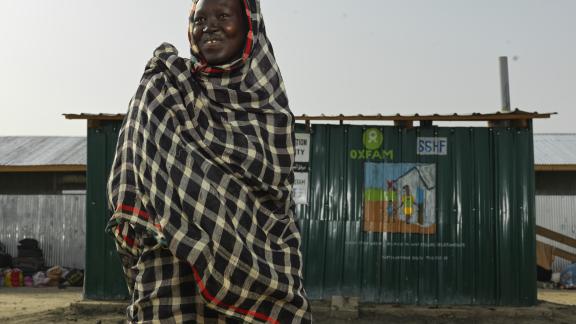
On February 10, 2022, an attack broke out in Abyei that spiraled into bloody tribal conflict between the Twic Dinka militias against the Ngok Dinka militias.
“The situation became dangerous in Abyei. My husband and I both lost family members during the war. My uncle and his children were killed. My husband's cousins were all killed. There wasn’t enough food or water for everyone. We ran to Sudan in 2022 for our survival,” says Achol.
The family settled in Khartoum, Sudan’s capital, where they were welcomed by her husband’s remaining relatives who helped the family settle into their new metropolis lives.
“Living in Khartoum was exciting! The buildings and the cars were all exciting. The city was shining with nice cars. I prefer Khartoum to the village, it was the best life,” reminisces Achol.
Achol found work as a house cleaner while her husband worked as a security guard. The family adjusted well to urban living and started to find joy in their day-to-day lives again until, April 15, 2023 when fighting erupted in Khartoum. A power struggle between the Sudanese armed forces and the Rapid Support Forces (RSF) turned into a gruesome civil war.
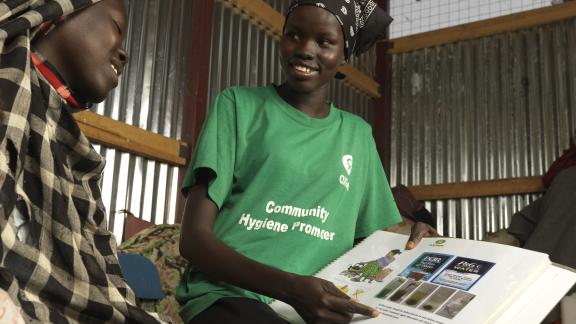
After a year of peace, another war was on Achol’s front doorstep. “I experienced many more deaths in Sudan,” claims Achol. Violence and hunger drove Achol’s family outside the capital city. “It looked really bad in Khartoum when I left.
“Things became very expensive in Khartoum. Suddenly there was no food, electricity, or water. When the war started, we had stored a small amount of food. When the food ran out we left the city and went to a small town to hideout,” says Achol.
The family moved to a remote area, expecting their conditions to improve. Unfortunately, the war still devastated the area with shortages of food and water. Days of happiness were few. Despite the stress from the war, Achol found out she was pregnant with her second child.
She had to stay on and following the birth of her child, her husband urged her to leave Sudan for safety. “He said, go first and I will follow, when we are together, we will make a decision on our future,” says Achol sorrowfully.
